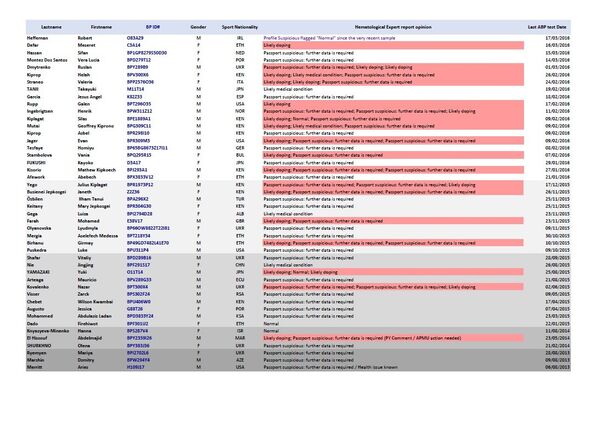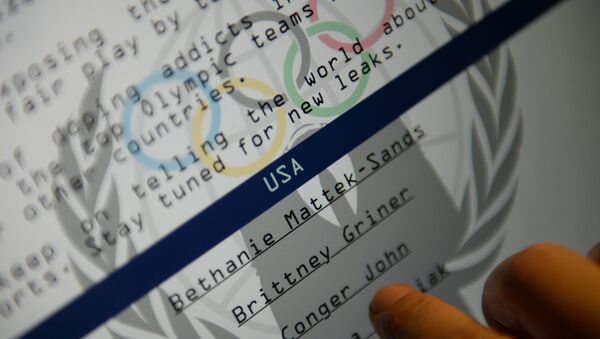The documents, released late Wednesday, provide new evidence highlighting the inefficiency and corruption in professional sports doping tests, and the extent to which the International Association of Athletics Federations (IAAF), governments and other agents conspire to interfere in doping investigations or disguise rule violations.
The latest tranche of info, part of Fancy Bears' self-professed campaign against doping and corruption in sports, includes a spreadsheet from the IAAF's Athletics Medical & Anti-Doping Department showing that over forty athletes had their athlete biological passports listed as 'suspicious', with some 18 athletes flagged as 'likely doping' by testers.
The athletes in the spreadsheet include international track and field stars Mohamed Farah of the UK, Kenya's Mary Keitany and Galen Rupp and Evan Jager from the USA. Farah and Rupp's coach, Alberto Salazar, is currently under investigation by the US Anti-Doping Agency for illegal schemes under the Nike Oregon Project.

The released email conversations also point to evidence of other scandals, including officials' failure to promptly investigate suspected doping and concealment of prize monies.
Fancy Bears' archive also includes a list of nearly two dozen emails on the case of Italian race walker Alex Schwazer, showing what appears to be active involvement by Italian officials to try to cover up the possible violation of anti-doping rules.
Fancy Bears began releasing athlete data last year in an attempt to uncover the extent of possible doping in world sports. In April, the IAAF confirmed that they had been hacked in February 2017, and suggested that the information released Wednesday may have been part of the same breach.


